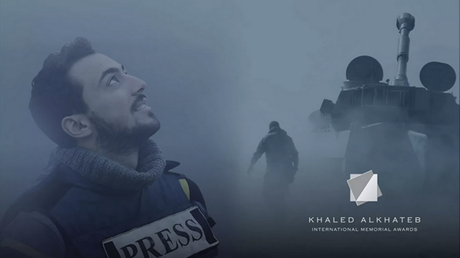Dr. Edith Eger was sent to the Nazi death camp Auschwitz when she was 16.
Jordan Engle
At age 16, Edith Eger was sent to Auschwitz but survived. She later moved to the US and became a best-selling author and psychologist.Eger said she doesn’t run away from the past and thinks of everything as a learning experience.
Edith Eger was 16 years old when the Nazis sent her and her family to Auschwitz. There, both her parents and grandparents were killed in gas chambers, guards were relentlessly cruel and abusive toward her, and she nearly died of starvation.
When the death camps were liberated, US soldiers found the ballerina and gymnast, who had been a prisoner for 15 months, among a pile of corpses in a wooden structure at a subcamp of Mauthausen, an Austrian site she had been moved to.
With a broken back and pneumonia, she and her older sister Magda, then 23, traveled back to Košice, their Slovakian hometown on the border of Hungary.
In 1949, Eger moved to the US with her late husband, Béla Eger, and earned a psychology degree in 1969. She went on to become a best-selling author, a psychologist who specializes in healing trauma, and a great-grandmother to seven.
Almost 40 years after the Holocaust, Eger returned to Auschwitz to release her grief and survivor’s guilt, she wrote in her memoir “The Choice.” There, she put a stone down for her parents in keeping with the Jewish tradition of paying respect to deceased loved ones.
“We can’t alter the past or control what’s coming around the next corner. But we can choose how we live now,” Eger, 97, writes in her new book “The Ballerina of Auschwitz.”
“The way you look at things, that’s how it’s going to be,” Eger told me on a video call from her sunny home in San Diego last month. She appeared onscreen a little late because “Edie can’t be on Zoom without her lipstick!” her grandson, Jordan Engle, told me. Before she arrived, he said heartfeltly that speaking to her would change me “just a little bit.”
Eger became a psychologist after emigrating to the US.
Jordan Engle
By interviewing Eger, I hoped I’d be able to distill how someone who had experienced such unimaginable tragedy could go on to live a long, successful, and joyful life.
I’d spent the day absorbed by the horrifying details of her Holocaust story in her book, so I already knew she was hugely resilient.
But when her smiling, glamorous face popped up on my laptop screen, it was hard to fully grasp all she had been through. This person had gone from sharing a single pair of shoes with her two sisters after the war to leading a life many would envy.
Eger spoke slowly and warmly, and it became clear that her positive mindset, empathy, and sense of humor are her defining features.
“I don’t know many, many things. But I’m okay with that. I’m human,” she said.
Eger shared some of the key principles that have guided her through life.
Don’t run away from the past
Eger didn’t speak to anyone about surviving the Holocaust for decades, living with the trauma in silence. In her 40s, Eger decided it was time to come to terms with her past. For her, that entailed becoming comfortable having conversations about her experience, returning to Auschwitz, writing a memoir, and ultimately accepting what happened to her.
“Of course, I never forget what happened, but I don’t live in Auschwitz. I stay in the present,” Eger said.
Engle, who works closely with his grandmother to tell her story publicly, said that accepting being a Holocaust survivor enabled her to move forward.
“Being able to look it in the face and say, ‘this is what happened to me. I don’t approve of it. I don’t like what happened to me, but I accept it,'” he said. That’s what helped her start the version of her life she leads today, Engle added.
Eger said although she was victimized by the Nazi regime, it was important for her to shift from a victim to a survivor mentality. This empowered her to choose how she wanted to frame her experience.
Eger and her late husband Béla had their first baby Marianne in 1947.
Edith Eger
Treat everything as a learning experience
Eger now sees her time in Auschwitz as a “hellish classroom” where she developed patience, compassion, and the ability to accept herself. These traits enabled her to help others through her clinical work and storytelling, she said.
As a psychologist, she encouraged her clients to treat everything as a learning experience and a chance to grow.
“It’s very, very important the way you think because that can make or break your life,” she said.
You have to be your own cheerleader, she said, and remember that everything in life is temporary and you can survive it.
Researchers at the Complutense University of Madrid who studied shared traits among centenarians found that focusing on the positives in life was common in this group.
Eger and her older sisters Magda and Klara in 1930.
Edith Eger
Having a purpose that serves others
Aside from Eger’s evident resilience, Engle believes a big factor in her longevity is her strong sense of purpose.
During the Holocaust, her purpose was to survive the horrors inflicted on her. Since then, it has been to share the lessons she learned, he said, so it wasn’t all for nothing.
“She’s very committed to doing the work,” he said.
Having a strong purpose, be it work, religion, or social responsibility, is a common theme among healthy older people. BI has spoken to many who still work well into their 80s and 90s.
In Japan’s Blue Zone Okinawa, a region where people live around a decade longer than the country’s average, older residents remind themselves of their “ikigai,” or life purpose, every morning.
Eger with her children, grandchildren, and great grandchildren in 2020.
Jordan Engle
Practice self-care
Self-care is a big part of Eger’s life and she’s adamant that “it’s not narcissistic.”
Sometimes it takes the form of having her hair and makeup done or getting regular massages. Engle said that Eger has always taken time to make herself look good.
“She’s never given up on her, it’s not vanity, it’s on her sense of self, being a beautiful woman, and making sure that she presents herself in a certain way,” he said.
As she told me several times, “all you have for your life is you, yourself.”





+ There are no comments
Add yours